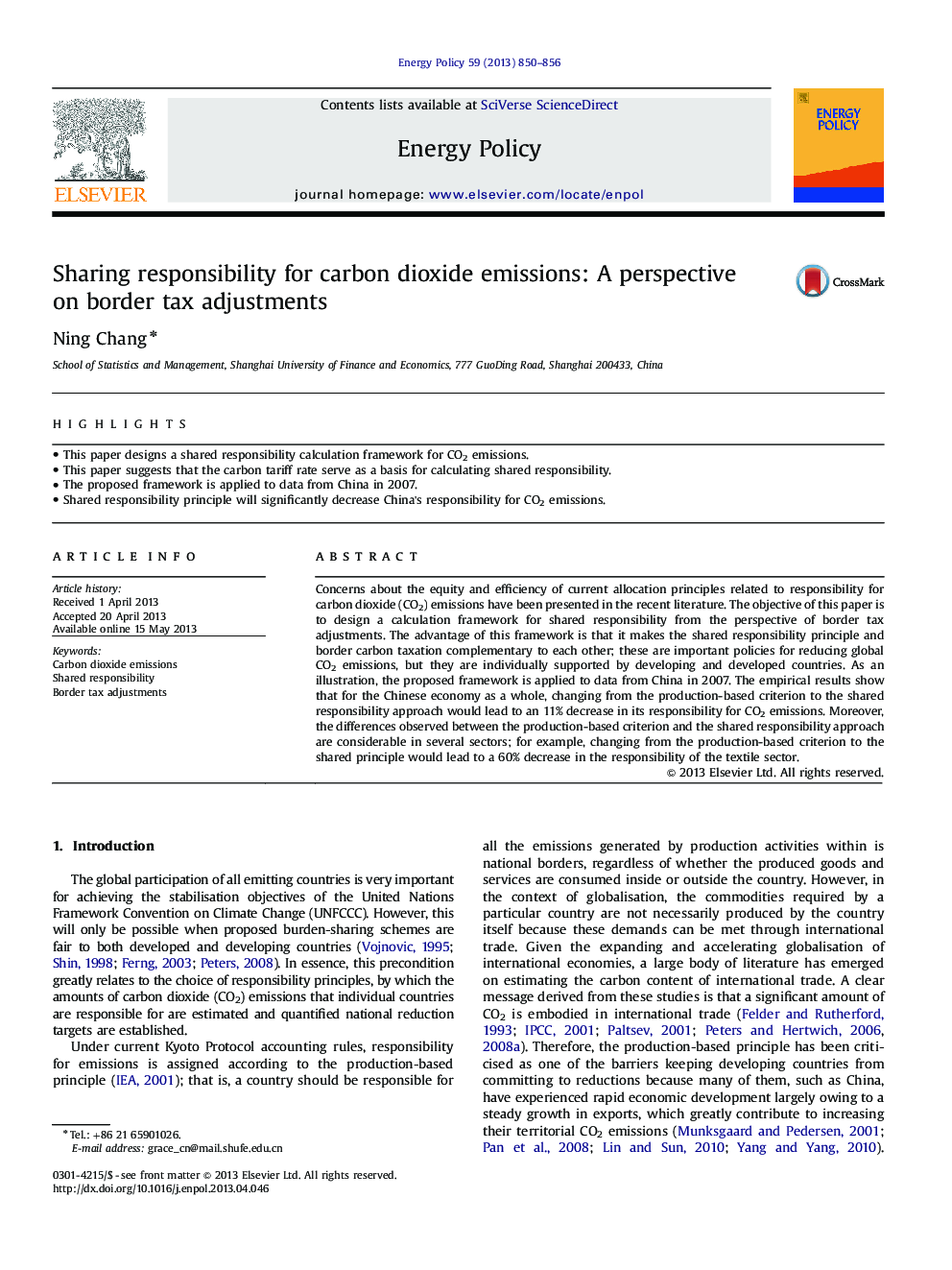| کد مقاله | کد نشریه | سال انتشار | مقاله انگلیسی | نسخه تمام متن |
|---|---|---|---|---|
| 7404846 | 1481299 | 2013 | 7 صفحه PDF | دانلود رایگان |
عنوان انگلیسی مقاله ISI
Sharing responsibility for carbon dioxide emissions: A perspective on border tax adjustments
ترجمه فارسی عنوان
به اشتراک گذاری مسئولیت انتشار دی اکسید کربن: یک دیدگاه در تنظیمات مالیات مرزی
دانلود مقاله + سفارش ترجمه
دانلود مقاله ISI انگلیسی
رایگان برای ایرانیان
کلمات کلیدی
انتشار دی اکسید کربن، مسیولیت تقسیم شده، تنظیمات مالیات مرزی،
ترجمه چکیده
نگرانی در مورد صلاحیت و کارایی اصول تخصیص فعلی مربوط به مسئولیت انتشار گاز دی اکسید کربن در ادبیات اخیر ارائه شده است. هدف از این مقاله طراحی یک چارچوب محاسبه برای مسئولیت مشترک از منظر تنظیمات مالیات مرزی است. مزیت این چارچوب این است که باعث می شود اصل مسئولیت مشترک و مالیات بر کربن مرزی مکمل یکدیگر باشند؛ اینها سیاست های مهمی برای کاهش انتشار گازهای گلخانه ای در جهان هستند، اما آنها به طور جداگانه از سوی کشورهای در حال توسعه و توسعه یافته پشتیبانی می شوند. به عنوان یک تصویر، چارچوب پیشنهادی برای داده های چین در سال 2007 اعمال می شود. نتایج تجربی نشان می دهد که برای کل اقتصاد چینی، تغییر از معیار تولید به رویکرد مسئولیت مشترک، منجر به کاهش 11 درصدی در مسئولیت انتشار گازهای گلخانه ای علاوه بر این، تفاوت های بین معیار مبتنی بر تولید و رویکرد مسئولیت مشترک در چندین بخش قابل توجه است؛ برای مثال، تغییر از معیار تولید بر اساس اصل مشترک منجر به کاهش 60 درصدی مسئولیت بخش نساجی می شود.
موضوعات مرتبط
مهندسی و علوم پایه
مهندسی انرژی
مهندسی انرژی و فناوری های برق
چکیده انگلیسی
Concerns about the equity and efficiency of current allocation principles related to responsibility for carbon dioxide (CO2) emissions have been presented in the recent literature. The objective of this paper is to design a calculation framework for shared responsibility from the perspective of border tax adjustments. The advantage of this framework is that it makes the shared responsibility principle and border carbon taxation complementary to each other; these are important policies for reducing global CO2 emissions, but they are individually supported by developing and developed countries. As an illustration, the proposed framework is applied to data from China in 2007. The empirical results show that for the Chinese economy as a whole, changing from the production-based criterion to the shared responsibility approach would lead to an 11% decrease in its responsibility for CO2 emissions. Moreover, the differences observed between the production-based criterion and the shared responsibility approach are considerable in several sectors; for example, changing from the production-based criterion to the shared principle would lead to a 60% decrease in the responsibility of the textile sector.
ناشر
Database: Elsevier - ScienceDirect (ساینس دایرکت)
Journal: Energy Policy - Volume 59, August 2013, Pages 850-856
Journal: Energy Policy - Volume 59, August 2013, Pages 850-856
نویسندگان
Ning Chang,
